Yesterday my friend Derek Magill asked the Praxis community, “What books have had the most impact on your career/education?”
I love this question. Notice the use of the word impact. He isn’t asking for your favorite books, the books you recommend on a specific subject, or the books you agree with the most. He is asking for the books that have had a significant impact on your education. Books that influenced and changed the way you think and interact with the world.
Here is my list, in order of when I read them. I explain what impact they had on my education and how that shifted the way I interact with the world.
These books also provide a further testament to the importance of self-education. Only four of these sixteen books were assigned through traditional education. The rest I found and chose to read on my own.
 Zen and the Art of Motorcycle Maintenance – This was the first real philosophy book I read. It encouraged introspection, got me thinking about the nature of truth/quality/the good/rationality, and introduced me to metaphysics. I read it in high school.
Zen and the Art of Motorcycle Maintenance – This was the first real philosophy book I read. It encouraged introspection, got me thinking about the nature of truth/quality/the good/rationality, and introduced me to metaphysics. I read it in high school.
 Freakonomics was my first introduction to economics. I found it fascinating. It unlocked a whole world of complexity I had never considered. This kicked off multiple years of my studying economics, two dedicated rows on my bookshelf, and an eventual job at an economic education non-profit. Read in high school.
Freakonomics was my first introduction to economics. I found it fascinating. It unlocked a whole world of complexity I had never considered. This kicked off multiple years of my studying economics, two dedicated rows on my bookshelf, and an eventual job at an economic education non-profit. Read in high school.
 The Law led me to question political authority and introduced me to a new world outside of Democrats and Republicans. This was my political red pill. Read as a sophomore in high school.
The Law led me to question political authority and introduced me to a new world outside of Democrats and Republicans. This was my political red pill. Read as a sophomore in high school.
 Cato: A Tragedy – This is the first play I read that I actually enjoyed. I liked it so much that I revisited it a second time a few months later. It deals with liberty, honor, virtue, and personal responsibility in a way that is accessible, unlike dense Shakespearean plays that require close study and previous knowledge of some words that aren’t used anymore.
Cato: A Tragedy – This is the first play I read that I actually enjoyed. I liked it so much that I revisited it a second time a few months later. It deals with liberty, honor, virtue, and personal responsibility in a way that is accessible, unlike dense Shakespearean plays that require close study and previous knowledge of some words that aren’t used anymore.
 Tree and Leaf, a small collection of little-known Tolkein works, including
On Fairy-Stories, Leaf by Niggle, and
Mythopoeia, changed my mind about fantasy stories. After reading this collection, I no longer viewed them as works for silly children, but rather as important works deserving of our attention and study. Fantasy works allow readers to view their own world from the perspective of an outside one. They also awaken the moral imagination. I read it first as a sophomore in college.
Tree and Leaf, a small collection of little-known Tolkein works, including
On Fairy-Stories, Leaf by Niggle, and
Mythopoeia, changed my mind about fantasy stories. After reading this collection, I no longer viewed them as works for silly children, but rather as important works deserving of our attention and study. Fantasy works allow readers to view their own world from the perspective of an outside one. They also awaken the moral imagination. I read it first as a sophomore in college.
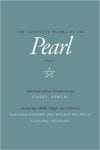 Sir Gawain and the Green Knight – This is the first extended verse story that I studied close enough to truly appreciate the craft, cunning, and command of language that went into it. This is when I finally “got” parallelism, both/and possibilities, balance, symbolism, and the nuances and ambiguities of translation. I read it first as a senior on high school, but didn’t “get it” until reading it again as a junior in college.
Sir Gawain and the Green Knight – This is the first extended verse story that I studied close enough to truly appreciate the craft, cunning, and command of language that went into it. This is when I finally “got” parallelism, both/and possibilities, balance, symbolism, and the nuances and ambiguities of translation. I read it first as a senior on high school, but didn’t “get it” until reading it again as a junior in college.
 Father Brown, The Essential Tales – This was the first collection of short stories that I owned. It cemented my love of mysteries and my love of the short story medium as a whole. Since then I’ve purchased and read dozens of collections of short stories and started working on my own.
Father Brown, The Essential Tales – This was the first collection of short stories that I owned. It cemented my love of mysteries and my love of the short story medium as a whole. Since then I’ve purchased and read dozens of collections of short stories and started working on my own.
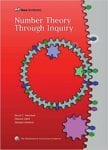 Number Theory Through Inquiry – Number theory was my first proof-based pure math course (as opposed to calculation-based math like calculus, probability, etc). In this book, only the first theorem is given to you and you must prove the rest on your own. The book guides you with questions and exercises, but the rest is left up to the reader. I forged my problem solving skills, critical thinking, and logical thought processes while working through this book.
Number Theory Through Inquiry – Number theory was my first proof-based pure math course (as opposed to calculation-based math like calculus, probability, etc). In this book, only the first theorem is given to you and you must prove the rest on your own. The book guides you with questions and exercises, but the rest is left up to the reader. I forged my problem solving skills, critical thinking, and logical thought processes while working through this book.
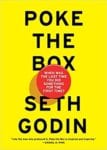 Poke the Box – One of the first books I read that encouraged innovation, trying things, instigation, and taking initiative. Read as a junior in college.
Poke the Box – One of the first books I read that encouraged innovation, trying things, instigation, and taking initiative. Read as a junior in college.
 Amusing Ourselves to Death opened my eyes to how the medium of television and the incentives of show business (including media companies that show the news) shape how we interact with, process, and believe information. This was written before the internet was prevalent, but it also applies to the social media age as well. This led me to shun television and radio, be wary of news sources, consciously ignore most daily news, and take regular breaks from social media. I read this as a senior in college.
Amusing Ourselves to Death opened my eyes to how the medium of television and the incentives of show business (including media companies that show the news) shape how we interact with, process, and believe information. This was written before the internet was prevalent, but it also applies to the social media age as well. This led me to shun television and radio, be wary of news sources, consciously ignore most daily news, and take regular breaks from social media. I read this as a senior in college.
 Education of Millionaires – First book I read that came right out and questioned higher education and put college opt-outs on a pedestal. Read during my last semester at college at a pivotal moment in my life. I was trying to decide whether or not to go to grad school.
Education of Millionaires – First book I read that came right out and questioned higher education and put college opt-outs on a pedestal. Read during my last semester at college at a pivotal moment in my life. I was trying to decide whether or not to go to grad school.
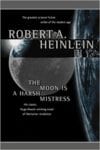 The Moon is a Harsh Mistress – At a time when I hadn’t read fiction for at least a year and a half and had harbored a long-standing eye-roll about sci-fi, I picked this up after hearing at least 20 people recommend it. I loved it so much that it broke open the sci-fi floodgates for me and I started reading fiction again. It got my imagination working once more! I read it during a dark winter away from my fiancee, friends, and family at my first job.
The Moon is a Harsh Mistress – At a time when I hadn’t read fiction for at least a year and a half and had harbored a long-standing eye-roll about sci-fi, I picked this up after hearing at least 20 people recommend it. I loved it so much that it broke open the sci-fi floodgates for me and I started reading fiction again. It got my imagination working once more! I read it during a dark winter away from my fiancee, friends, and family at my first job.
 Flatland got me thinking about different dimensions, the way in which thinking is governed by your perspective, and the way in which society tends to reject any new ideas that fall out of their traditional perspective. Read just before leaving a non-profit that tried to change people’s minds, and I became increasingly convinced that the only way to actually change people’s minds is to build things that allow them to interact with the world in a different way, thus changing their perspective.
Flatland got me thinking about different dimensions, the way in which thinking is governed by your perspective, and the way in which society tends to reject any new ideas that fall out of their traditional perspective. Read just before leaving a non-profit that tried to change people’s minds, and I became increasingly convinced that the only way to actually change people’s minds is to build things that allow them to interact with the world in a different way, thus changing their perspective.
 Turning Pro demystified the creative process for me when I was two years into my career and struggling with “the grind” and in a general funk. It is hard work and showing up every day that leads to creativity and good output, not being a brilliant creative genius.
Turning Pro demystified the creative process for me when I was two years into my career and struggling with “the grind” and in a general funk. It is hard work and showing up every day that leads to creativity and good output, not being a brilliant creative genius.
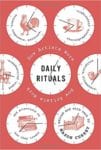 Daily Rituals illustrated the concepts in Turning Pro by telling the stories of how 161 famous novelists, poets, playwrights, painters, philosophers, scientists, and mathematicians do their daily work. Read a few years ago when I was struggling with being on a traditional work schedule and this pushed me to redesign my day to work when I am best suited for the task rather than an arbitrary time period.
Daily Rituals illustrated the concepts in Turning Pro by telling the stories of how 161 famous novelists, poets, playwrights, painters, philosophers, scientists, and mathematicians do their daily work. Read a few years ago when I was struggling with being on a traditional work schedule and this pushed me to redesign my day to work when I am best suited for the task rather than an arbitrary time period.
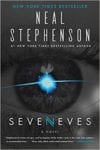 Seveneves got me thinking about the long-term future of the human race. Maybe populating other planets isn’t the future, but rather giant space station colonies, made necessary by an apocalyptic event on Earth and the poor state of our space travel. It also got me thinking about the evolution of the human species in the future in a very concrete way. I read this last year and it has been on my mind at least once a week since.
Seveneves got me thinking about the long-term future of the human race. Maybe populating other planets isn’t the future, but rather giant space station colonies, made necessary by an apocalyptic event on Earth and the poor state of our space travel. It also got me thinking about the evolution of the human species in the future in a very concrete way. I read this last year and it has been on my mind at least once a week since.
April 28, 2018
